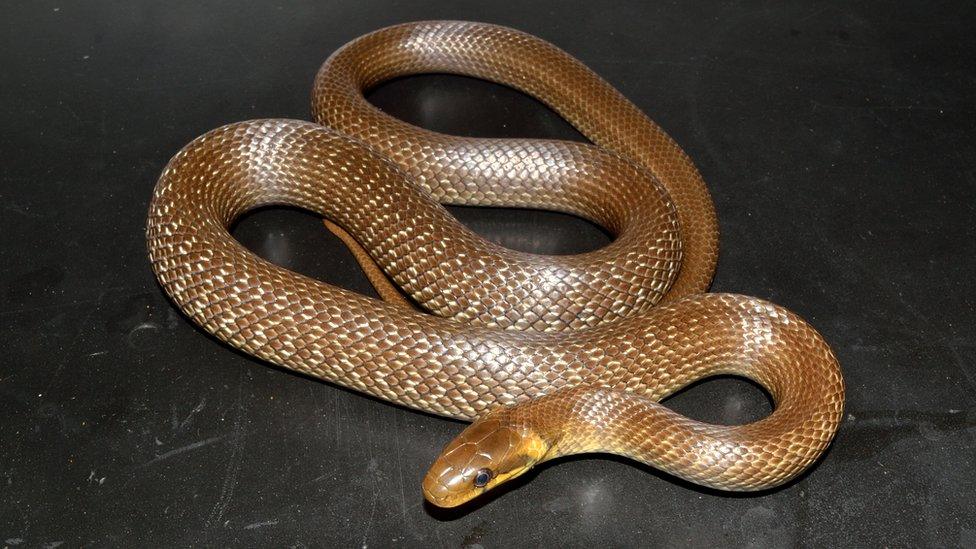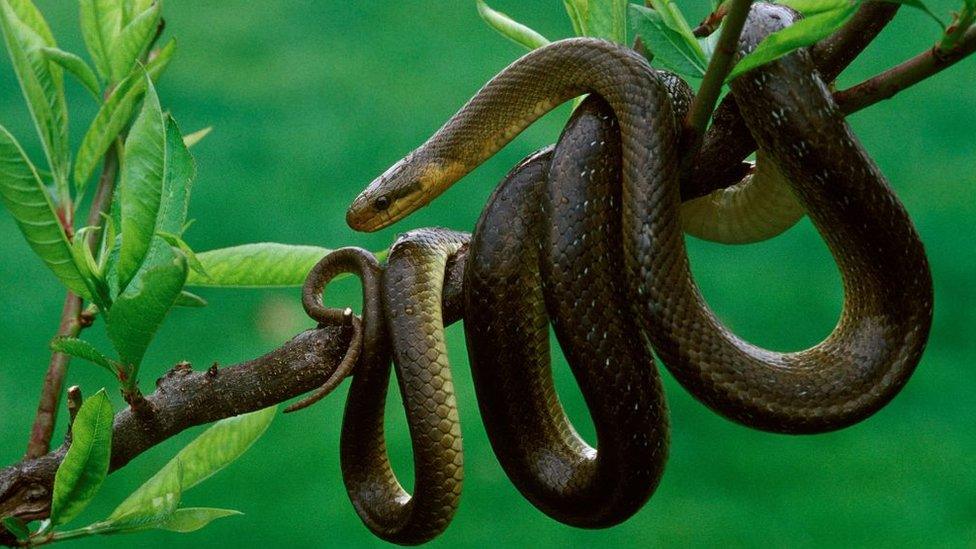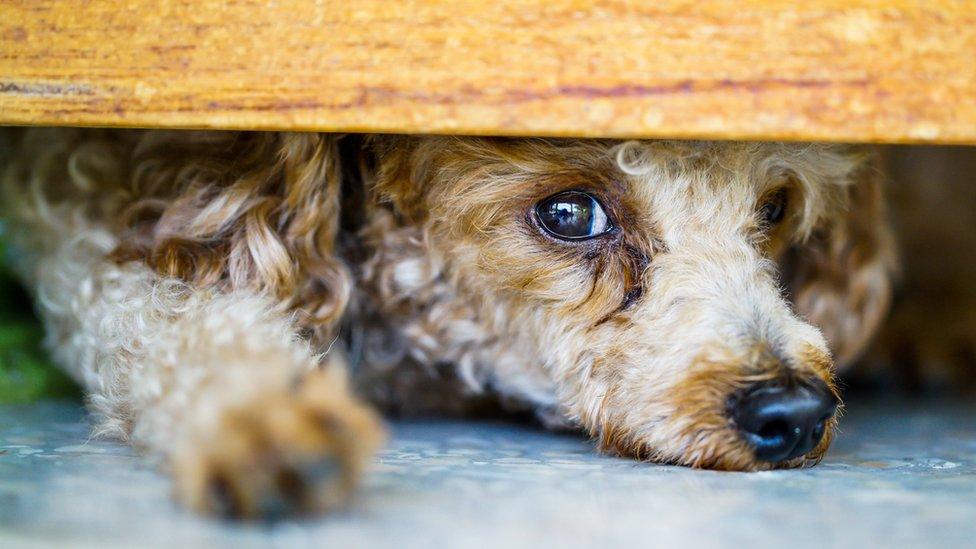Rat-eating snakes in Wales after 10,000 years out of UK
- Published

Aesculapian snakes have established a population in north Wales after escaping from a zoo
A snake last seen in the wild in the UK 10,000 years ago is breeding in Wales.
The Aesculapian snake can grow up to 6ft (1.8m) but the largest spotted here has been about 4ft 11in (1.5m).
The rat-eating reptiles are near Mochdre, Conwy county. They are yet to cross the A55 and head south, according to PhD student Tom Major.
The Bangor University researcher has found about 200 of them. About 150 are juvenile and many will become dinner for buzzards, badgers and stoats.
Mr Major said the adult population was about 70 and living in an area of just a few square kilometres.
They were imported into Wales in the 1960s by the Welsh Mountain Zoo's Robert Jackson before they fled into the zoo grounds, external.
Mr Major said: "There is no sign of a wild expansion as far as I know given that they have not crossed the A55 but they are making a go of it in a habitat that does not suit any of our native species."
They have been seen sunning themselves on hay bales.
Mr Major said: "They have never been in Wales before. They were down in the south-east of England in Kent.
"That's where there was fossilised evidence of them. But they have been as far north as north Wales before."

The serpents can grow to about 6ft in length
Even more unlikely, he said, was that the cold-blooded animals were living on the north-facing slopes of Colwyn Bay.
They have been occupying overgrown gardens and empty buildings.
Mr Major said, so long as they could get underground to hibernate, that would suit them.
"They go underground from October to April," he added.
Radio trackers are being applied to the animals in a bid to find out more about them.
"We put a transmitter on the snake which involves a straightforward minor surgical procedure and once we have done that we track them every day," Mr Major said.

WILD MOUNTAINS OF SNOWDONIA: Five farming families open their gates and share their lives
BROTHERS IN DANCE: The remarkable duo at the forefront of UK dance

- Published10 May 2022

- Published6 October 2021
- Published26 September 2021
